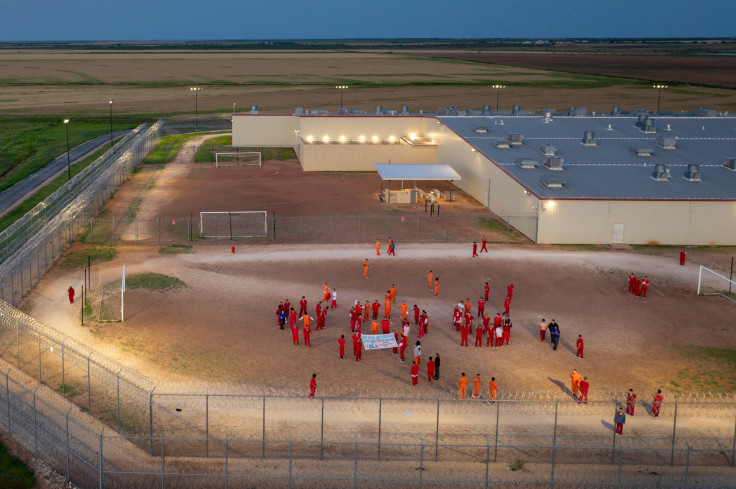
The Trump administration is asking the Supreme Court to allow the deportation of nearly 200 Venezuelan migrants currently held in Texas, most of whom are accused of being members of the Tren de Aragua gang.
The migrants are being detained under the Alien Enemies Act—a law from the 1790s originally meant for use during wartime. The government argues that the group poses a safety risk and should be removed quickly, and wants the high court to allow it to enforce the act to expedite their removal.
In a filing Monday, Solicitor General D. John Sauer pointed to a recent incident at Bluebonnet Detention Facility, where 23 detainees allegedly barricaded themselves in a housing unit and threatened to take hostages. ICE official Joshua Johnson said the situation endangered staff and other detainees and led to the group being transferred to a higher-security facility. ABC News confirmed the details of the court filing. Sauer said the migrants had become "especially dangerous to maintain."
That incident happened at the same facility where in April a drone captured 31 migrants forming the letters "SOS" in the center yard—an apparent plea for help. According to Reuters, some of the same migrants had just received unexpected deportation notices. Advocates say the stunt reflects growing fears that deportations could send some of the men not to Venezuela, but to El Salvador, where other migrants have reportedly been jailed without charges and under the Alien Enemies Act.

The Trump administration is asking the Supreme Court to change its current order blocking deportations so that it applies only to removals under the Alien Enemies Act, not under Title 8, which is the regular immigration law used for deportation and asylum cases. Title 8 includes more legal protections like hearings and access to attorneys.
Sauer argued that the migrants had been given enough time to challenge their removal in court but hadn't done so, and that further delays could make it harder to enforce immigration laws.
Several Venezuelan migrants deported under the AEA have been sent not to their home country, but to El Salvador, some being held in CECOT—a maximum-security prison built to detain suspected gang members. Human rights groups say many were never formally charged with crimes and were targeted based on tattoos or unverified claims.
The Supreme Court's decision could set a major legal precedent, determining how far a president can go in using wartime powers to bypass standard immigration laws.
© 2025 Latin Times. All rights reserved. Do not reproduce without permission.





